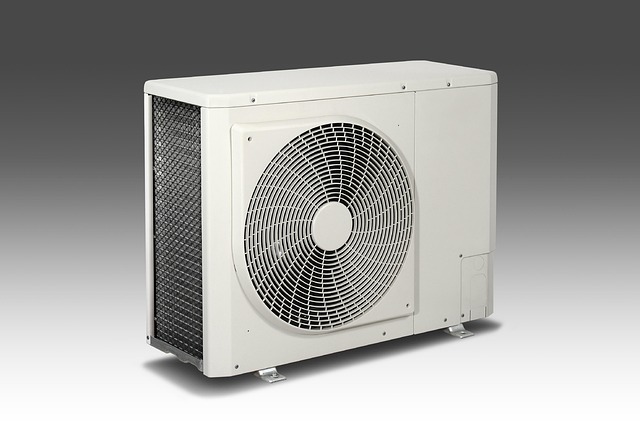Smarter Air Conditioning: What to Know Before You Upgrade Your Cooling System
Modern air conditioners are evolving quickly — bringing new features like smart control, silent operation, and energy-saving modes that adjust to your lifestyle. In this article, we explore how to choose the right air conditioner for your needs, what features matter most, and how smart cooling can make a noticeable difference in both comfort and efficiency. No hype, just helpful insights for better decisions.

What Are the Different Types of Air Conditioners Available?
The market offers several types of air conditioners, each designed for specific applications and home configurations. Central air conditioning systems are the most popular choice for whole-home cooling, using ductwork to distribute conditioned air throughout the house. These systems typically consist of an outdoor condenser unit and an indoor evaporator coil connected to your furnace or air handler.
Window units and portable air conditioners serve as excellent solutions for cooling individual rooms or smaller spaces. Window units mount directly in a window frame and offer good efficiency for their size, while portable units can be moved between rooms but require a window for exhaust venting.
Ductless mini-split systems have gained popularity due to their flexibility and efficiency. These systems feature an outdoor compressor connected to one or more indoor air handlers, allowing for zone-based cooling without requiring existing ductwork. Heat pumps represent another versatile option, providing both heating and cooling functions in a single system.
What Are the Key Benefits of Modern Cooling Systems?
Benefits of modern cooling systems extend far beyond simple temperature control. Today’s advanced units incorporate variable-speed technology that adjusts cooling output based on actual demand, resulting in more consistent temperatures and reduced energy consumption. This technology eliminates the frequent on-off cycling common in older systems, providing quieter operation and better humidity control.
Smart connectivity features allow homeowners to control their systems remotely through smartphone apps, set customized schedules, and receive maintenance alerts. Many modern systems also include advanced filtration capabilities that remove allergens, dust, and other airborne particles, significantly improving indoor air quality.
Energy efficiency represents one of the most compelling advantages, with modern units achieving SEER ratings of 16 or higher compared to older systems that may operate at SEER 8-10. This improved efficiency translates to substantial savings on monthly utility bills while reducing environmental impact.
How Do You Choose the Right Air Conditioner for Your Home?
Tips for choosing the right air conditioner begin with proper sizing calculations. An oversized unit will cycle on and off frequently, wasting energy and failing to adequately remove humidity. Conversely, an undersized unit will struggle to maintain comfortable temperatures and run continuously, leading to premature wear and high energy bills.
Professional load calculations consider factors like square footage, ceiling height, insulation quality, window placement, and local climate conditions. The layout of your home also influences the best system type – homes with existing ductwork may benefit from central air, while older homes without ducts might be better suited for mini-split systems.
Consider your budget not just for initial purchase and installation, but also for long-term operating costs. Higher-efficiency units typically cost more upfront but provide significant savings over their lifespan. Additionally, evaluate features that matter most to your household, such as quiet operation, smart controls, or advanced filtration capabilities.
What Makes Energy-Efficient Air Conditioning Worth the Investment?
Energy-efficient air conditioning systems deliver measurable benefits through reduced electricity consumption and lower utility bills. Modern high-efficiency units use advanced compressor technology, improved refrigerants, and better heat exchanger designs to achieve superior performance while consuming less power.
ENERGY STAR certified systems meet strict efficiency guidelines and often qualify for utility rebates or tax incentives, helping offset the initial investment. Variable-speed compressors adjust their output to match cooling demands precisely, avoiding the energy waste associated with single-speed units that operate at full capacity regardless of actual needs.
Proper installation and regular maintenance are crucial for maintaining energy efficiency. Even the most efficient system will underperform if installed incorrectly or not maintained properly. Sealed ductwork, proper refrigerant levels, and clean filters all contribute to optimal efficiency and performance.
How Can You Maintain Your Air Conditioner for Optimal Performance?
Maintaining your air conditioner requires both homeowner attention and professional service to ensure reliable operation and longevity. Monthly tasks include checking and replacing air filters, which can become clogged with dust and debris, restricting airflow and reducing efficiency. Clean filters also improve indoor air quality and prevent strain on system components.
Keep the outdoor unit clear of vegetation, debris, and obstructions that can impede airflow. Trim bushes and plants to maintain at least two feet of clearance around the unit, and regularly remove leaves, grass clippings, and other debris from the condenser coils.
Professional maintenance should occur annually, ideally before the cooling season begins. Technicians will inspect electrical connections, check refrigerant levels, clean coils, lubricate moving parts, and identify potential issues before they become costly repairs. This preventive approach extends system life, maintains efficiency, and helps prevent unexpected breakdowns during peak usage periods.
| System Type | Provider | Cost Estimation |
|---|---|---|
| Central Air (3-ton) | Carrier/Trane | $3,500-$7,500 |
| Ductless Mini-Split | Mitsubishi/Daikin | $2,000-$5,000 |
| Window Unit (12,000 BTU) | Frigidaire/LG | $400-$800 |
| Portable Unit | Honeywell/Black+Decker | $300-$700 |
Prices, rates, or cost estimates mentioned in this article are based on the latest available information but may change over time. Independent research is advised before making financial decisions.
Making the Right Cooling System Decision
Selecting the appropriate air conditioning system requires careful consideration of your home’s specific needs, budget constraints, and long-term goals. Modern systems offer unprecedented efficiency, comfort, and convenience compared to older units, making upgrades worthwhile investments for most homeowners. Whether you choose a traditional central air system, efficient mini-splits, or room-specific units, proper sizing, professional installation, and regular maintenance will ensure optimal performance and longevity. Taking time to research options and consult with qualified local services will help you find the ideal cooling solution for your home.




